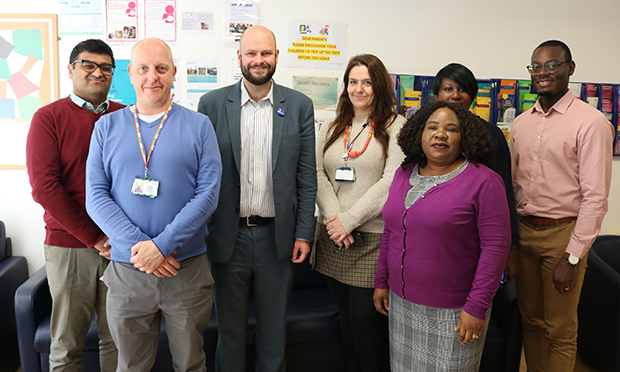Hackney’s diagnosed depression rates highest of any London borough

Hackney has the highest rates of diagnosed depression of any London borough, with 9.6 per cent of the population diagnosed in 2017-18.
While the reasons for the figures remain too complex to identify entirely, both the Town Hall and independent charity Mind theorise that the borough’s mental health services are better at diagnosing and supporting people with depression than those in other parts of the city.
Hackney also has high rates of socio-economic deprivation, which is linked to depression.
Krishna Maharaj, CEO of City & Hackney Mind, said: “One reason for these figures could be that Hackney’s mental health facilities are better able to capture them, so there could be fewer hidden people. A lot of people are silent sufferers in other boroughs.
“In Hackney, the commissioning is of a high standard so they are also able to treat quite hard-to-reach groups – here we have a wellbeing network, which includes all the different ethnic organisations as well, so this could be another factor.
“Something else we come across in our work is that Hackney is a very tolerant and accepting borough. In other parts of London there is less tolerance of people who are different. A lot of people with mental health problems then perhaps move to Hackney, because they are more accepted, whereas in other boroughs, they’re not as welcomed.
“Deprivation will also be a factor, as there is a link with mental health. It can be hard for young people’s wellbeing to live in such an environment.”
The borough’s rates are significantly above the London average of around seven per cent, according to research conducted by the Guardian based on House of Commons Library analysis of data from NHS Digital (2017/18), with Newham the lowest at 5.4 per cent.
Second-highest was Bromley, with a diagnosis rate of nine per cent. Highest in England is Wyre Forest with 16.2 per cent of the population.
Hackney was the eleventh most deprived local authority in England overall in 2015, with 36 per cent of people living in poverty, according to Trust for London data.
A spokesperson for City & Hackney clinical commissioning group (CCG), which commissions health services across the borough, pointed out that it has recently invested in improving information about patients with depression.
This allows health professionals to monitor people’s overall health, treatments and recovery, which could have contributed to a rise in diagnoses of depression.
The CCG has stated that the prevalence of depression in Hackney is also a result of improvements it has undertaken in the way depression is diagnosed and recorded.
The spokesperson said: “An accurate register is important to enable GPs and health professionals effectively monitor good patient care.
“The CCG carries out systematic and targeted depression reviews offering a range of health checks, therapies, treatments and access and information on a range of services, including preventative information about crisis support services.
“Hackney’s rates of using talking therapies is high, compared to the use of antidepressants, in line with NICE guidance for good clinical care.”
“It would be good to see standards for primary care depression management, from coding to clinical input, along with more mental health workers in primary care to help provide this together with GPs to ensure good integrated mental and physical health care where patients want it.”
The CCG went on to suggest that other areas could be underreporting or underestimating depression rates, making Hackney’s seem comparatively high.
Cllr Tom Rahilly (Lab, Kings Park), the council’s mental health champion, said: “The council and our health partners are fully committed to help improve the mental health and wellbeing of people across Hackney.
“Early prevention and intervention is key, we know that many mental health difficulties start early in people’s lives and can develop into more serious illnesses, if left without support.
“We are carrying out a number of actions to improve preventative support and to promote positive mental wellbeing.
“We support the work of our health partners including ‘5 to Thrive’, a local initiative based on the Five Ways to Wellbeing and fund a range of services through the City and Hackney Wellbeing Network and Hackney’s One You programme.
“This is why we are working closely with stakeholders in local public services to build on the existing quality support, to ensure people can access help as early as possible.”
Hackney Council is promoting ‘5 to Thrive’ as part of Mental Health Awareness Week from 13 to 19 May.
The campaign outlines five simple steps that people can make every day to improve their mental wellbeing.
To find out more, head to fivetothrive.net
